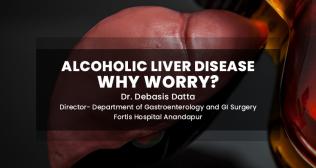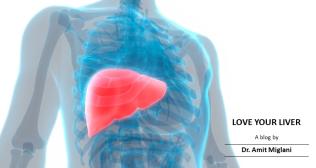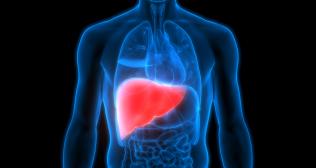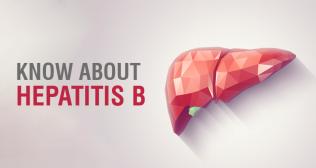
Liver Transplant Hospital in Mumbai
Liver Transplant Hospital in Mumbai
A liver transplant (or hepatic transplant) is a surgical procedure involving the replacement of a diseased liver with a healthy liver from another person, who can be living or dead. A whole or a portion of the liver maybe transplanted. Transplant from brain dead donor is called deceased donor liver transplant (DDLT) or cadaver liver transplant whereas if donor is living it is called Living donor Liver Transplant (LDLT). Living donor liver transplant is possible because of two reasons. Nature has given lot of extra liver, Normal healthy person needs only 25-30% of their liver, and secondly Liver is the only organ in our body which regenerates. Liver grows back to 90% of original size in 6-8 weeks. Because of these two reasons family members can donate part of their Liver to their loved ones.
Fortis Mulund - Best Hospital for Liver Transplant in Mumbai
Department of Liver Transplant and Hepato Pancreato Biliary Surgery, Fortis Hospitals Mumbai, comprises of experts with extensive experience in managing patients with all varieties of liver disease. Centre provides entire spectrum of services ranging from partial and complete liver transplant (living and deceased donor transplantation surgeries), combined multi-organ transplant (heart, kidney and liver transplant in the same procedure) and complete treatment for liver and Biliary tumours such as Liver Resection surgeries, Trans Arterial Chemoembolization (TACE), radiofrequency embolization (RFA). Fortis Hospital, Mumbai is equipped with all high end diagnostic machines (3 TMRI,128 slice CT, ARFI, Fibroscan) for diagnosing all kinds of Liver problems
Our transplant team utilises a collaborative approach, working across departments like Hepatology, gastroenterology, radiology, oncology and paediatrics, to bring customised care to patients at each stage of treatment.
We are leading in the city for the best surgical outcomes, at par with international standards. We have an overall 96% survival in our Liver transplant recipients, this includes 100% survival for DDLT recipients (last 2 years statistics). Our Liver Transplant team is proud to provide full spectrum of transplant services which includes Adult and paediatric Liver Transplant, Blood Group Mismatch (ABO incompatible), Combined Liver Kidney transplant, Living and Cadaver Liver Transplant. Pivotal to our liver transplant program is the psychosocial and mental wellbeing support, health education and advanced care accessible to the patient and the family throughout the clinical journey. Patient is actively involved in understanding the risks and benefits of the care plan, to enable a smooth transition post-surgery, to lead a longer, better quality of life.
Our multi-disciplinary liver transplant team ensuring personalised care:
- Liver transplant surgeons
- Hepatologists
- Gastroenterologists
- Paediatric Hepatologists
- Liver Intensivist
- Anaesthetists
- Dietician
- Physiotherapist
- Well-trained transplant nurses, transplant coordinators, social workers, psychologists and clinical nutritionists
The team is ably supported by intensive care specialists, infectious diseases specialists, radiologists and clinical pharmacologists.
Our team has performed more than 75 liver transplants.
Areas of Care
- Alcohol induced liver disease
- Autoimmune liver diseases
- Biliary atresia
- Cirrhosis
- Drug induced hepatitis
- Genetic diseases (hemochromatosis, Wilson's disease)
- Hepatitis A, B and C
- Liver tumours
- Metabolic diseases
- Non-alcoholic fatty liver disease
- Portal hypertension
- Primary biliary cirrhosis
- Primary sclerosing cholangitis
When is a liver transplant needed?
The liver performs many important functions in our body including making proteins, breaking down nutrients to generate energy from food and removing toxins. Liver is workhorse of the body and does more functions than any solid organ in our body. A liver transplant is required in three main categories of patient 1. Cirrhosis (chronic Liver Disease) 2. Acute Liver Failure 3. Liver cancer
Liver failure may happen suddenly due to certain drug-induced injury or infection. This is called acute or fulminant liver failure. This condition can be very serious and in Fulminant Liver Failure liver transplant is a lifesaving procedure. Cirrhosis or chronic liver disease is a condition where Liver injury happens over long duration of time, this can be months or years. Cirrhosis is a common cause of end-stage liver disease, in which healthy liver tissue is replaced with scar tissue. Other major causes leading to cirrhosis and liver failure leading to liver transplant are:
- Viral Hepatitis B and C.
- Alcoholic liver disease - excessive alcohol consumption leading to damage of the liver.
- Non-alcoholic fatty liver disease - condition in which fat builds up in the liver, causing inflammation or liver cell damage.
- Genetic diseases affecting the liver - such as hemochromatosis, which causes iron levels to rise and Wilson's disease, which causes excess levels of copper in the liver.
- Metabolic diseases - changes in the chemical activity of cells affected by the liver.
- Diseases affecting the bile ducts - such as primary biliary cirrhosis, primary sclerosing cholangitis and biliary atresia (occurs in children).
- Primary liver cancers - cancerous tumours that originate in the liver such as hepatocellular carcinoma.
What tests are conducted to evaluate a patient before getting a liver transplant?
- Laboratory tests - blood and urine tests to assess the health of the organs including liver. And, also to find a good donor match.
- Diagnostic tests - X-ray, CT, liver biopsy, heart (ECG) and lung tests (pulmonary function tests), colonoscopy and dental exams. Women may also undergo a pap test, gynaecological exam and a mammogram.
- Psychological and social evaluation - including stress, financial concerns, support from family and friends post the surgery.
Once these tests are completed, our transplant team assesses the patient’s clinical condition to undergo a liver transplant and decides on the best treatment plan. Patients are seen by all team members and after thorough discussion in our Multi-Disciplinary Meeting (MDT) we decides and offer tailor made treatment options for each and every patient. On meeting all criteria, patient is put on the waiting list for a liver transplant.
Liver transplant donor:
A liver can be donated by someone whose alive or dead.
A living donor - in a living donor transplant, surgeon takes part of the liver for the implant in the patient’s body. The liver grows back to its regular size in a few weeks.
1. Who can be a living donor?
A living donor is a family member, whose blood type and body size need to match with the patient. A donor between 18 and 60 years old is ideal. The donor undergoes various tests to assess clinical condition for donation:
- Liver disease
- Overuse of alcohol or drugs
- Cancer
- Infections
- Hepatitis
- HIV
2. Deceased donor (Cadaveric donation) - Such a donation is possible from a brain-dead person whose family wishes to donate the person's organs before discontinuing life support. This situation arises in a hospital ICU in a person after an accident or head injury. Allocation of such organs is strictly according to blood group match, time on waiting list and urgency of requirement. Donor identity and other details are always kept confidential.
3. Staying healthy while on the waiting list
The number of people waiting for a liver is much more than the available deceased donor livers. During this long wait for a donated liver or a scheduled transplant surgery, it’s important to stay healthy. Being healthy and active will help in speedy recovery from surgery. Points to keep in mind:
- Continue with medications, as prescribed
- Follow diet and exercise guidelines
- Involving self in healthy activities, including relaxing and spending time with family and friends
- Keep in regular touch with the care team including information on any significant changes in health.
Our Liver Transplant Services in Mumbai
- Combined organ transplant
- Conventional liver transplant (from a deceased donor)
- Living donor liver transplantation (LDLT)
- Pediatric Liver Transplant
- ABO Incompatible Liver Transplant
- Portal hypertension surgery
Leading Liver Transplant Hospital - Fortis Mulund
Mulund - Goregaon Link Rd, Nahur West, Industrial Area, Bhandup West, Mumbai, Maharashtra 400078
Ph. 02268846143
Neurology Hospital in Mumbai | Kidney Transplant Hospital in Mumbai | Cancer Hospital in Mumbai | Bone Marrow Transplant Hospital in Mumbai | Heart Hospital in Mumbai | Breast Cancer Hospital in Mumbai | Mouth Cancer Hospital in Mumbai | Anemia Hospital in Mumbai | Heart Failure Treatment in Mumbai | Emergency Hospital in Mumbai | Radiation Therapy in Mumbai | Eye Hospital in Mumbai | Kidney Cancer Hospital in Mumbai



















